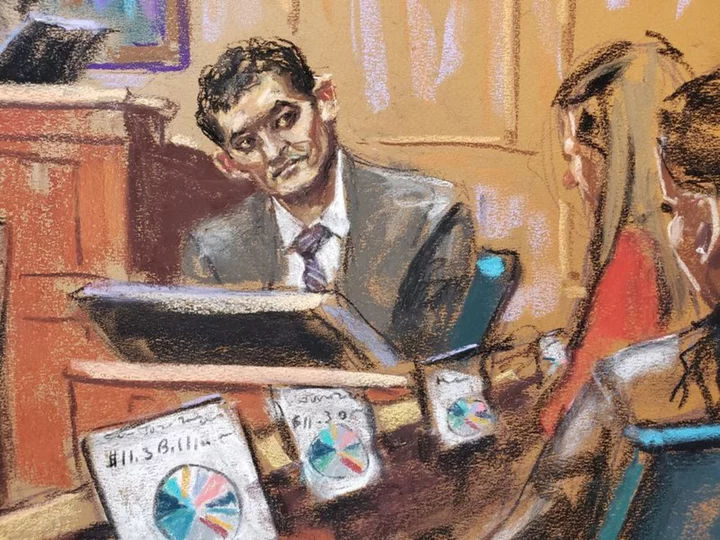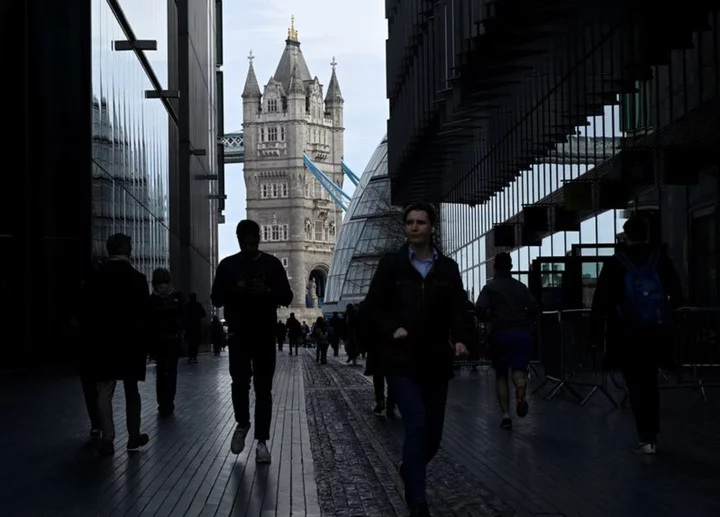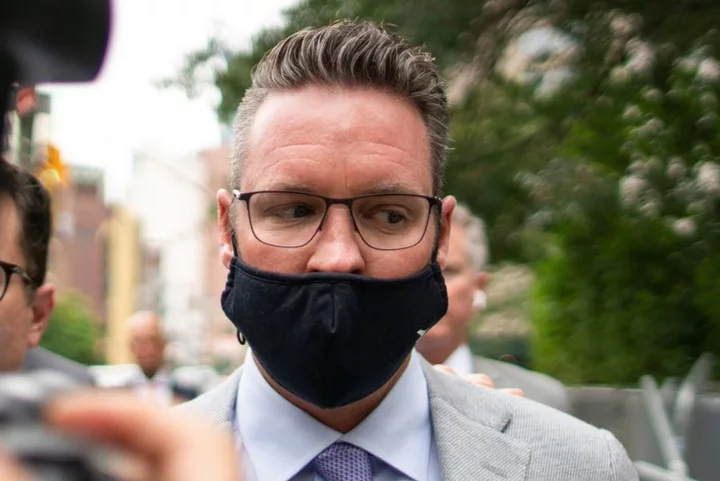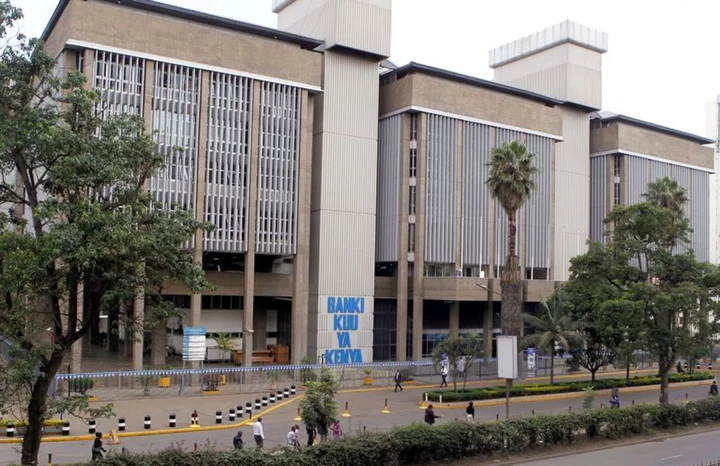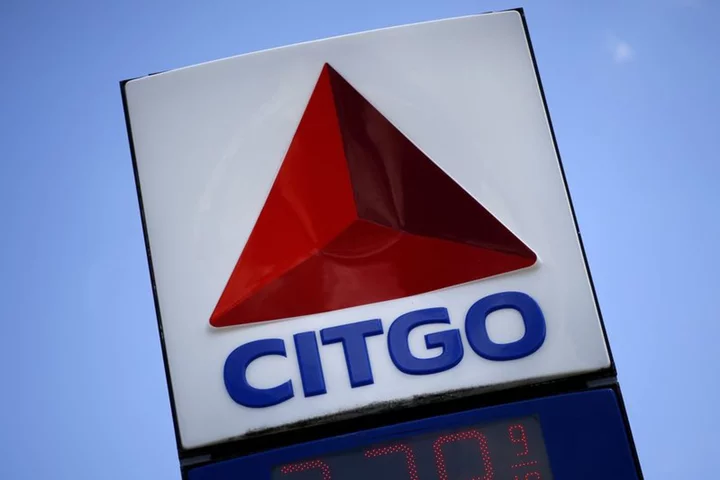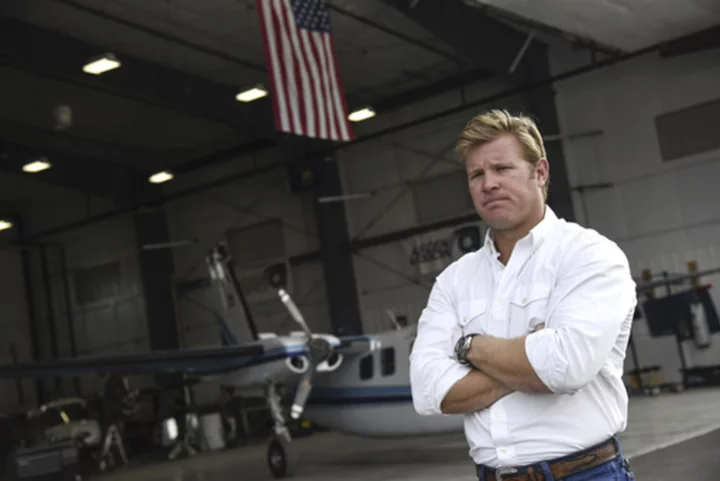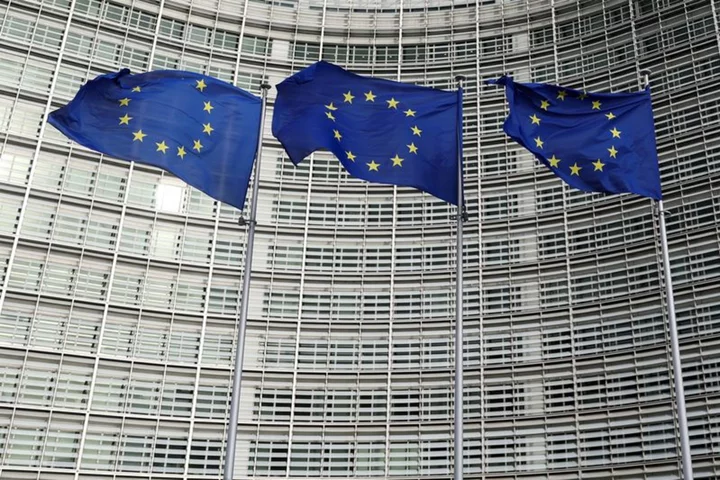By Luc Cohen and Jody Godoy
NEW YORK (Reuters) -FTX founder Sam Bankman-Fried built the cryptocurrency exchange into a "pyramid of deceit" and stole billions of dollars from thousands of its customers, a prosecutor told jurors on Wednesday as Bankman-Fried's fraud trial neared its end.
The prosecution was delivering closing arguments in Bankman-Fried's trial in Manhattan federal court a day after the defense rested its case. Prosecutors have accused him of stealing $8 billion in one of the biggest financial frauds in U.S. history.
"This was a pyramid of deceit built by the defendant on a foundation of lies and false promises, all to get money," prosecutor Nicolas Roos told the jury. "Eventually it collapsed, leaving thousands of victims in its wake."
A lawyer for Bankman-Fried will give his closing argument once Roos finishes.
Bankman-Fried, 31, may learn his fate just shy of one year after FTX filed for bankruptcy in a swift corporate meltdown that shocked financial markets and wiped out what had been his estimated $26 billion fortune.
The defense wrapped up its case on Tuesday after Bankman-Fried underwent a second day of tough cross-examination by the prosecution - the risk he ran by opting to testify in this own defense. Bankman-Fried, who pleaded not guilty to two counts of fraud and five counts of conspiracy, tried over three days of testimony to convince the 12 jurors of his innocence.
In all, the jury heard 15 days of testimony in Manhattan federal court. Three of Bankman-Fried's former close confidantes, testifying for the prosecution after entering guilty pleas, said he directed them to commit financial crimes, including helping his crypto-focused Alameda Research hedge fund siphon FTX customer deposits and lying to lenders and investors about the finances of the two companies.
Roos told jurors that there is no question that billions of dollars of customer money were used to pay off Alameda's lenders, make speculative investments and donate to U.S. political candidates.
Rather, Roos said, the main disputes in the case are over what Bankman-Fried knew about where customer money went and whether it was wrong. Roos he urged the jury not to buy the argument that Bankman-Fried's companies collapsed due to poor business decisions such as Alameda's failure to hedge its bets.
"He took the money," Roos told the jurors. "He knew it was wrong. He did it anyway, because he thought ... he could walk his way out of it and talk his way out of it. And today, with you, that ends."
Under questioning from his lawyer Mark Cohen, Bankman-Fried portrayed himself as a busy CEO who left operational nuts and bolts to subordinates. He also maintained that while he made mistakes that harmed customers and employees, he never defrauded anyone or stole money.
Roos told jurors Bankman-Fried sounded like a "different person" once he started being cross-examined by fellow prosecutor Danielle Sasson, noting that the defendant claimed not to recall details 140 times in response to her questions.
"The story the defendant told you was that he didn't know what was going on and didn't think what he was doing was wrong - and that was a lie," Roos said.
Closing arguments probably will take several hours, and jurors are not expected to get the case before Thursday to begin deliberations.
Bankman-Fried could face decades in prison if convicted on all counts. He has been jailed since August after Kaplan revoked his bail, having concluded that he likely tampered with witnesses.
(Reporting by Luc Cohen in New York; Editing by Will Dunham)

